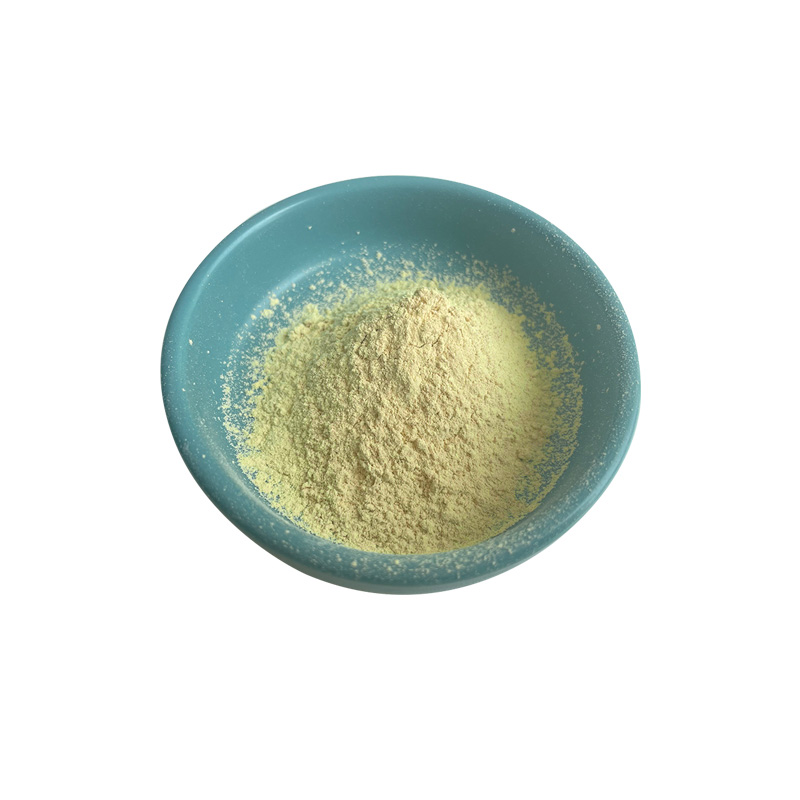Exploring the Remarkable Health Benefits of Glucan
Introduction:
Yeast Glucan are a group of naturally occurring polysaccharides found in various sources, including fungi, grains, and bacteria. These complex carbohydrates have gained significant attention in the field of nutrition and health due to their potential health benefits. In this article, we will delve into the diverse range of health benefits associated with glucan consumption, offering insights into its positive effects on immunity, cardiovascular health, gut health, and more.
Immune System Support:
Glucans have been widely studied for their immunomodulatory properties. They can activate various components of the immune system, such as macrophages, natural killer cells, and dendritic cells, enhancing their ability to fight against pathogens. By stimulating immune responses, glucans play a vital role in strengthening the body's defense mechanisms and reducing the risk of infections.
Cardiovascular Health:
Research suggests that glucans may have beneficial effects on cardiovascular health. They have been found to help lower cholesterol levels by binding to dietary cholesterol and inhibiting its absorption. Moreover, glucans can positively influence blood lipid profiles, reducing the levels of triglycerides and low-density lipoprotein (LDL) cholesterol while increasing high-density lipoprotein (HDL) cholesterol. These effects contribute to the prevention of cardiovascular diseases, including atherosclerosis and coronary artery disease.
Blood Sugar Regulation:
Glucans exhibit promising properties in managing blood sugar levels. They can form a gel-like substance in the digestive tract, slowing down the absorption of glucose from the diet. This slower release of glucose into the bloodstream helps regulate blood sugar levels and may be beneficial for individuals with diabetes or those at risk of developing the condition. Additionally, glucans may enhance insulin sensitivity, further contributing to improved glycemic control.
Gut Health and Digestion:
The consumption of glucans has been associated with improved gut health and digestion. These polysaccharides can serve as prebiotics, providing nourishment for beneficial gut bacteria. By promoting the growth of these beneficial bacteria, glucans help maintain a healthy balance in the gut microbiota. This balance is crucial for optimal digestion, nutrient absorption, and overall gastrointestinal health.
Antioxidant and Anti-inflammatory Effects:
Glucans possess antioxidant properties, enabling them to scavenge harmful free radicals and protect cells from oxidative damage. Additionally, they exhibit anti-inflammatory effects by inhibiting the production of pro-inflammatory molecules in the body. These properties make glucans potentially valuable in reducing chronic inflammation, which is associated with various chronic diseases, including cardiovascular diseases and certain autoimmune conditions.
Skin Health:
Glucans are also recognized for their benefits to skin health. They have been used in skincare products due to their moisturizing and soothing properties. Glucans can help improve skin hydration, reduce skin irritation, and promote the healing of wounds. These effects make them a valuable ingredient in cosmetic formulations, aiding in the maintenance of healthy and youthful-looking skin.
Conclusion:
The remarkable health benefits associated with glucans make them an area of increasing interest in the field of nutrition and health. From their immune-boosting properties to their positive effects on cardiovascular health, gut health, blood sugar regulation, and more, glucans offer a wide range of potential advantages for overall well-being. As research continues, further exploration of glucans and their mechanisms of action will undoubtedly uncover additional benefits, making them an exciting area for future study and development in the realm of health and wellness.

Does Beta-Glucan Fight Inflammation?
Inflammation is a natural response of the immune system to injury or infection. While acute inflammation plays a crucial role in healing and protecting the body, chronic inflammation can contribute to the development of various diseases, such as cardiovascular disorders, diabetes, and autoimmune conditions. In recent years, there has been growing interest in the potential of beta-glucan, a type of soluble fiber, to combat inflammation. This article aims to explore the current scientific evidence regarding the anti-inflammatory properties of beta-glucan and its potential benefits for human health.
Understanding Beta-Glucan
Beta-glucans are polysaccharides found in the cell walls of various organisms, including bacteria, fungi, and plants. They are particularly abundant in certain types of fungi, such as mushrooms and yeast. These complex carbohydrates have attracted attention due to their immunomodulatory effects, including the ability to modulate inflammation.
Mechanisms of Action
Beta-glucans exert their anti-inflammatory effects through several mechanisms. Firstly, they can interact with specific receptors on immune cells, such as macrophages and dendritic cells, triggering an immune response. This interaction can enhance the production of anti-inflammatory cytokines while inhibiting the release of pro-inflammatory cytokines, thus regulating the immune system's inflammatory response.
Additionally, beta-glucans can stimulate the activity of natural killer cells and neutrophils, which are important components of the innate immune system. These immune cells play a vital role in recognizing and eliminating pathogens, and their activation by beta-glucan can help control inflammation.
Moreover, beta-glucans possess antioxidant properties. Oxidative stress, characterized by an imbalance between free radicals and antioxidants, is closely linked to inflammation. By scavenging free radicals and reducing oxidative stress, beta-glucans can mitigate inflammatory processes.
Scientific Evidence
Several studies have investigated the anti-inflammatory potential of beta-glucan in various experimental models and human trials. For instance, research conducted on animal models has shown that beta-glucan administration can reduce inflammation markers, such as C-reactive protein (CRP) and tumor necrosis factor-alpha (TNF-α), in conditions like rheumatoid arthritis and colitis.
In human studies, beta-glucan supplementation has been found to have promising effects on inflammatory markers. A randomized controlled trial involving individuals with metabolic syndrome revealed that beta-glucan consumption significantly reduced the levels of interleukin-6 (IL-6) and high-sensitivity CRP, both of which are associated with chronic inflammation.
Furthermore, a systematic review and meta-analysis of clinical trials investigating the effects of Yeast Glucan on inflammatory biomarkers reported consistent reductions in CRP levels in subjects receiving beta-glucan interventions. These findings suggest that beta-glucan may have a potential role in managing inflammation-related conditions.
Contact us: selina@ciybio.com.cn



